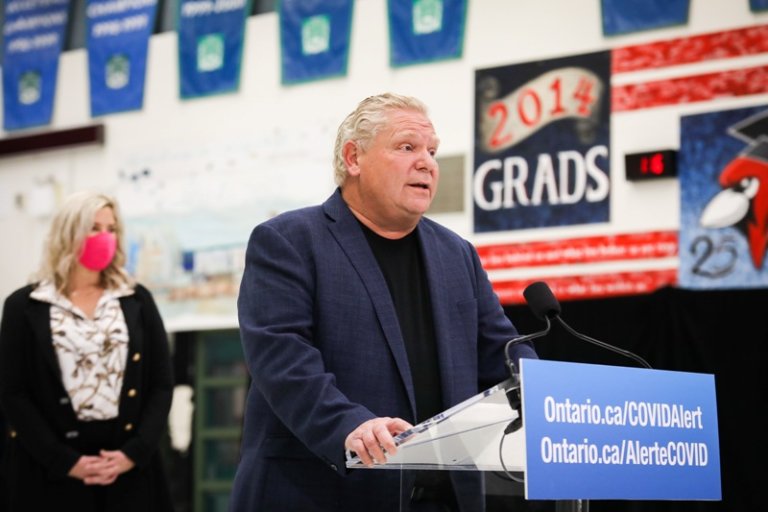Cannabis science prof. to research cannabis in opioid overdose treatment
The Voice of Canada News:
Examining the potential of cannabis in addressing the opioid overdose crisis and other substance-use disorders is a top priority for Dr. M-J Milloy, a recognized leader in the field of epidemiology and the first Canopy Growth professor of cannabis science at the University of British Columbia (UBC).
Initially, this professorship will lead clinical trials to explore the role cannabis can play in helping people with opioid-use disorder stay on their treatment plan.
In the first nine months of 2018, an estimated 1,143 people died of a suspected opioid overdose in British Columbia.
“We need all hands-on-deck to save lives and help people find the treatment and recovery services that will work for them long term,” said Judy Darcy, Minister of Mental Health and Addictions. “Our government has been bold and innovative in providing treatment options – based on evidence – for people living with addiction. This first-of-its-kind professorship will lead research and clinical trials on how cannabis products can be used to address the overdose crisis that is taking three to four lives a day.”
Dr. Milloy is a research scientist at the British Columbia Centre on Substance Use (BCCSU). As a substance-use epidemiologist, his research has focused on the inter-relationships between illicit drugs and HIV, as well as the public health impact of cannabis regulation and the medical application of cannabis and cannabinoids, especially for people living with HIV or substance-use disorders.
Research shows that fewer than one-third of people who start opioid agonist therapy (OAT), with methadone or buprenorphine/naloxone, remain in treatment after six months. Dropping out of addiction treatment is a serious risk factor for overdose death. Findings from these clinical trials could help identify ways to better support people with opioid-use disorder with cannabis-based therapy.
Dr. Milloy’s research will contribute to an emerging body of evidence suggesting that cannabis can have a positive impact on the well-being of people with opioid-use disorder.
This professorship was established through funding from Canopy Growth and the Province of British Columbia. The Province invested $500,000 to the BCCSU in support of research leading to solutions to the overdose crisis. Canopy Growth is contributing $2.5 million to UBC and BCCSU to establish the professorship and create an enduring legacy of research through the Canopy Growth Cannabis Science Endowment Fund.
Quotes:
Dr. Dermot Kelleher, dean, faculty of medicine and vice-president, health at UBC –
“The opioid overdose crisis demands holistic and scientific approaches in order to develop new knowledge and strategies in response to this urgent health issue facing our society. The new Canopy Growth professor of cannabis science at UBC promises to generate much-needed evidence-based solutions that will improve the health and well-being of British Columbians.”
Dr. Mark Ware, chief medical officer, Canopy Growth –
“There’s a clear need for significant resources and innovative collaborative leadership from industry, government and academia to address the overdose crisis, which continues to have a devastating impact on families and communities across Canada. Today, we acknowledge the lived experience of those affected and proudly support this significant step in building a legacy of medical cannabis research with a goal to positively impact those living with substance-use disorders around the world. Dr Milloy is a passionate, dedicated scientist who focuses on research that has a real-word impact, and we are thrilled UBC has selected him as the Canopy Growth professor in cannabis science.”
Dr. M-J Milloy, Canopy Growth professor of cannabis science –
“The therapeutic benefits of cannabis are only just beginning to be understood. Early research has shown that it could have a stabilizing impact for people with opioid-use disorder, improving their quality of life and offering a pathway to long-term treatment solutions. In the midst of an overdose crisis, we have a scientific imperative to build upon this research. I’m grateful for the support from Canopy Growth and the Province of B.C., and their commitment toward investing in evidence-based solutions to this urgent health crisis.”
Quick Facts:
- Dr. Milloy has authored more than 150 peer-reviewed articles on the impact of policy on the health outcomes of people who use drugs.
- His recent research includes studies that have found:
- Using cannabis every day was linked to a lower risk of starting to inject drugs amongst street-involved youth
- Daily cannabis use increased likelihood that people will stay in OAT treatment
- Intentional cannabis use resulted in preceded declines in crack use among crack cocaine users






